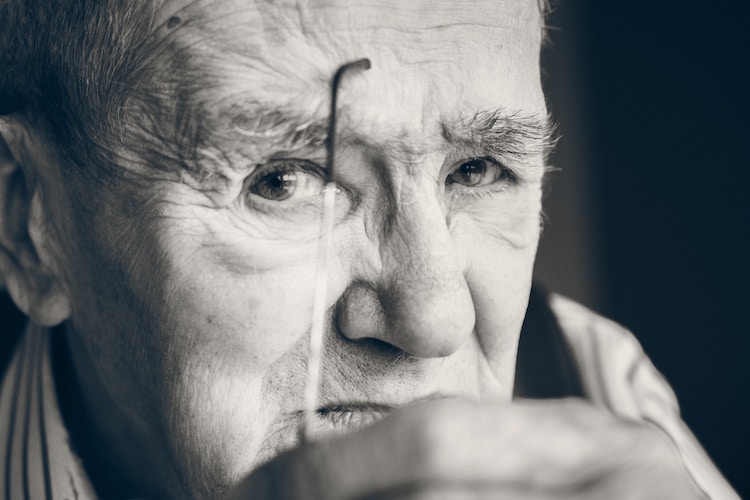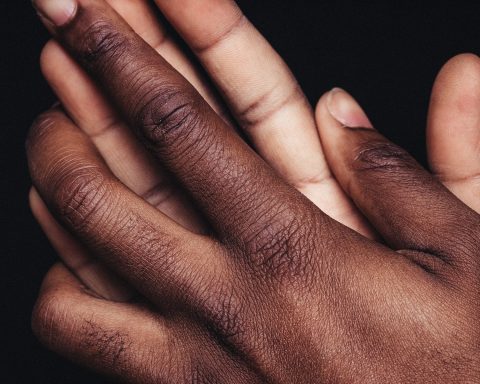 Chloe Webster is a 4th year medical student, a yogaholic, creative writing enthusiast, and an aspiring future GP.
Chloe Webster is a 4th year medical student, a yogaholic, creative writing enthusiast, and an aspiring future GP.
Through the zig-zag maze of the ward, he was in the first room on the left. An odd-shaped room, tucked in tight, just after the double doors. Blink and you miss it. The room was small, but he had made it his own. His coat was hung over the high back of the armchair. The wheeled table cluttered with all his favourite books. This was the first time I met him, but I could tell from his hospital room that he had been here for a very long time. The room had become a home away from home. He was going to die here.
Today was my first day on the ward. I joined my consultant for his morning ward round. A tall, thin man greets me. He always wore practical shoes: a pair of black slip-ons, with his stripy socks pulled up high. His hair is short, and sticks up. The picture ID on his hospital lanyard shows a much younger man, with more hair too. His glasses frame his slender face. His expression was always one of deep understanding. He never said much, but heard more than what was said to him.
We are stood at the nursing station. A cramped alcove budding off from the main part of the ward. It is cluttered with multi-coloured policy folders and loose pieces of paper. The telephone is always ringing. One of the nurses comes over to speak to the consultant.
“The family are here to see you”, she says. He looks up, and nods in response.
We make our way to sideroom 2.
Four of us enter. Now there are six people in the small room. The patient, his wife, the consultant, the registrar, the FY2, and me. I stand in the corner of the room, trying not to get in anyone’s way. I don’t really know what is happening. I simply stand and watch.
The occupant of the room is an elderly gentleman. His face is aged, and an unkempt beard has grown wildly off his jaw. He has teeth missing from years of heavy smoking. He is sat up in the armchair by the side of the bed. He wears a blue, stripy jumper. A blanket is drawn around him, but I can see that he has an above knee amputation. His wife sits opposite him, gracefully perched on a foot rest. The two of them separated by the table in between scattered with books. She is also elderly. Her face is less aged, but I can see she has been crying from the redness of her eyes. Her gaze is fixed down at her husband’s hand held tightly in hers.
I don’t really remember much of what the consultant said at this point. It is a day that I have suppressed to the back of my mind. It is a bad memory.
I’ll never forget his wife crying. Floods of tears streamed down her face. They were told that he wasn’t going to get better, and a time was coming where there would be nothing else that they could do. He was approaching the end of his life. She tried to hold back her emotions, but she couldn’t. She was going to lose her husband. Her grip on his hand tightened. Her husband’s response was very different. He wasn’t sad. He wore a smile across his face. I think this was for his wife’s benefit. He knew that the time was coming. His health had been deteriorating over the past months, fluid was overloading his body. His wife had buried her head in her hands, making her body smaller and smaller as she shrunk in to the foot stool.
I started crying. I drew myself further and further back in to the corner of the room hoping that no one would see me.
I remember the registrar frantically scribbling in the notes, recording every word that the consultant said. The FY2 offered a tissue to the wife, but I just stood there. I started crying. I drew myself further and further back in to the corner of the room hoping that no one would see me. I could hear the true sadness in his wife’s voice. She tried to speak, but her words trembled uncontrollably. It made me so sad to think that soon she would be alone. The FY2 soon noticed me. Tears were beginning to roll down my face. She took me outside. I didn’t go back in to the sideroom. After a few minutes, the others followed and left the room. They simply carried on with the rest of the morning ward round.
A few days later, I returned to my base ward. Without thinking, instinctively I went to the central hub of the nursing station. I looked up at the big whiteboard on the wall, detailing all the current patients. No matter how hard I looked, no matter how many times I double checked, I couldn’t find his name.
I went to the room. The door was wide open, the room was empty.
There was no coat, no pile of books carefully stacked on the table.
He was gone.
—-
Featured photo: Alexandre Debiève











Beautifully written – I enjoyed reading it. We must make sure that as the years pass we don’t lose sight of the human story behind the medical problems that are presented to us. In other words, we mustn’t stop caring.